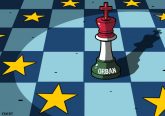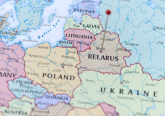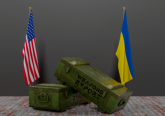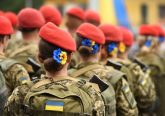Even after achieving independence, Belarus is still known as the most ‘Russianised’ of the post-Soviet countries. Its unique retention of Soviet structures even after the breakdown of the USSR demonstrates the lack of cohesive state identity in the country. This has allowed Alexander Lukashenko, the country’s first and only president to date, to concentrate more and more power in his own hands. This article argues that Belarus’ crisis of state identity has enabled Lukashenko’s populist and, subsequently, authoritarian nature. Further, the lack of state identity has allowed him to neglect the severity of the Coronavirus pandemic.

Belarus’s independence in the post-Cold War era was not a result of a long struggle, which hampered the formation of national identity. In 1991, after three-centuries under the rule of a variety of groups, newly independent Belarus started its journey of defining its unique cultural and institutional features. Historically, Belarus’ close ties to Russia gave rise to a culture of Soviet-Belarusian patriotism or the adoption of Soviet identity in place of a Belarussian one. Lukashenko himself had defined Belarusians as “Russians but of a higher degree.”
Just before the breakdown of the USSR, some privatisation of the economy had taken place. However, after Lukashenko was elected President, he renewed the Sovietisation of the country by returning control to the state. Within a year, he held a referendum to adopt slightly amended Soviet national symbols, made Russian a state language, and endorsed economic integration with Russia. After his election in 1994, instead of finding concrete measures to nurture the idea of Belarusian identity, Lukashenko emphasised two factors for national consolidation: increasing state capacity, along with the power of the president as its guarantor. Under the garb of opposing the elites, Lukashenko resorted to a referendum to amend the constitution to strengthen presidential power, while also intensifying anti-corruption and anti-elite campaigns.
Lukashenko’s populism places himself at the centre of Belarus’s identity. The values promoted by the government are “patriarchic rule by the bat’ka (or father),” which justifies building the Belarusian state around the President. This tactic has undermined the role of the opposition, which advocates for a classical sense of national identity by opposing close ties with Russia. To most Belarusians, they appear anti-patriotic. This is because the idea of their national identity is very closely tied to the idea of Lukashenko as their leader. This has made it challenging for the public to learn about or associate with the opposition.
The idea of Belarus being an extension of Lukashenko himself has caused diplomatic and economic crises in the country. It has allowed Lukashenko to do what he thinks is right as the father of the nation. Currently, Belarus has one of the highest daily rates of increase in Coronavirus infections in Europe. Yet, Lukashenko has not imposed a lockdown in the country. The number of healthcare professionals in Belarus is almost comparable to Germany, but the country is still far from flattening the curve of infections. The number of infections and deaths in the country have been speculated to be heavily underreported due to censorship from Lukashenko’s government. Plainly, Lukashenko does not perceive Coronavirus as a threat. He has gone so far as to call the disease a “psychosis” and believes that the high rate of Coronavirus deaths in the Mogilev region of the country can be attributed to chronic diseases.
Some think Lukashenko’s domineering reaction to Coronavirus is a product of the upcoming elections. But do those elections even matter? It seems likely that Lukashenko will win no matter what. There is a history of political oppression of the opposition in the country and the “father” has always emerged victorious. Still, Lukashenko is somewhat vulnerable if the economy falters. The Belarussian economy is underdeveloped, operating in a Soviet-era style. It remains overdependent on Russia, and its poor credit rating has kept it isolated from the international market. Recently, Putin has waged a silent but significant economic war on Belarus on account of his plans of making it a larger part of the Russian state. Thus, maintaining economic stability is critical for Lukashenko to remain in power. By not imposing a total lockdown, Lukashenko has attempted to keep economic activities going.
However, there is discontent with Lukashenko’s response and the opposition is becoming more prominent. The Belarussian Ministry of Health has issued notices on avoiding large gatherings, even though the President attended mass recently. The Ministry has also been reporting on the situation daily, even though its statements have been overshadowed by Lukashenko’s comments. The national train service has rearranged passenger seats to enable social distancing. Private sector companies have started working remotely. Some bars and restaurants have closed on their own. Finally, there is a decline in the number of people on the street and those using public transport.
However, large scale change may only come if Lukashenko decides to actively capitulate to the opposition to his pandemic strategy. This could be enabled by the increasing death rate, which may further cripple the economy, mounting pressure on the President to make changes.
Still, civil society’s discontent unfortunately may not be sufficient to bring true democratisation. The carefully constructed state institutions in Belarus do not leave scope for much dissent, if any at all. If somehow the country manages to lower the rate of infection in comparison to other European countries, the idea of Lukashenko as the protector and bastion of Belarussian state identity will only be strengthened. In either outcome, the situation does not seem to be looking up for the country. A source of hope for sustained change lies in the renewed interest by the European Union in Belarus to counter Moscow, in the post-pandemic world. This could help foster a post-Russia identity in the country, which would alter its political course for the better.






